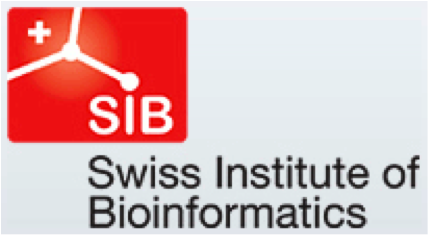 Announcing StarOmics doctoral program for PhD students
Announcing StarOmics doctoral program for PhD students
The CUSO (Conférence Universitaire de Suisse Occidentale) is happy to announce the creation of StarOmics, a doctoral program dedicated to train biologists in the analysis of large scale biological data.
Next generation biologists will face challenges in their everyday tasks both in terms of integrating quantitative aspects and reasoning using the novel strategies of the modern biology.
The StarOmics (or *omics) doctoral program (http://biologie.cuso.ch/staromics/) intends to create a network of PhD students and professionals involved in any project related to Genomics, Transcriptomics, Proteomics, Metabolomics, Connectomics, and all other large scale data-generating technologies.
Students of this program will be offered training, workshops, and seminars in genome-wide and proteome-wide data analysis, biological modeling, quantitative image analysis, programming and statistics, in addition to their thorough education in experimental biology, through a didactic program that complements both their individual research topic and background. In addition several events will be organized (annual retreat, mini-symposia, soft skills courses), which besides their didactic value will also favor networking among the students and professors either within this program or jointly with the federation of doctoral programs of the CUSO (Ecology & Evolution, Plant Sciences, and Microbiology).
PhD students of this program will become conversant in both experimental and computational approaches, and will acquire the ability to integrate quantitative and experimental methods in their own research. Graduates from this program will have unprecedented scientific competence to permit them to become future leaders in biological research and beyond.
The students will not receive ECTS credits from the StarOmics doctoral program, but an attestation to get ECTS credits in their own university.
What are the benefits?
– a large offer of courses and workshops renewed every year
see current list here: http://biologie.cuso.ch/staromics/activities/ (select 2011)
– a network of colleagues
– a series of soft skills courses (how to present slides, how to write an article, how to write a grant…)
– no ECTS counting (but certificate to reclaim ECTS at you own University)
– substantial reimbursement of travel and accommodation expenses
What are the requirements?
To obtain a final certificate from the StarOmics program, the participants are asked to register for a certain number of activities over the 3-year period of the program. Several activities could be offered twice or more over the period in various locations, giving the students some flexibility.
2 annual retreats
3 practical courses
6 workshops
1 joint seminar presentation
2 minisymposiums
2 soft skills training
Who can register?
Any PhD student in Western Switzerland Universities (Bern, Fribourg, Geneva, Lausanne, Neuchâtel) with a project using technologies of high throughput or large scale data generation. They must be in the first year of their thesis.
How to register?
a) Please fill in this form: http://biologie.cuso.ch/staromics/registration/
Don’t forget to mention any other doctoral program you are already part of or intend to join.
b) Send us your CV at staromics@cuso.ch
For any question please contact the coordinator of the program:
Corinne Dentan
Coordinator of StarOmics
Center for Integrative Genomics
Génopode Building
University of Lausanne
CH-1015 Lausanne
Phone: +41 (0)21 692 39 30
Email: corinne.dentan@unil.ch
http://biologie.cuso.ch/staromics
We wish you a nice Holiday Season and hope to meet you in the StarOmics activities in 2011.
Prof. Nouria Hernandez, Chair of the committee
Prof. Beat Suter, Representative of the University of Bern
Prof. Simon Sprecher, Representative of the University of Fribourg
Prof. Karl-Heinz Krause, Representative of the University of Geneva
Prof. Ioannis Xenarios, representative of the University of Lausanne
Prof. Pilar Junier, Representative of the University of Neuchâtel




